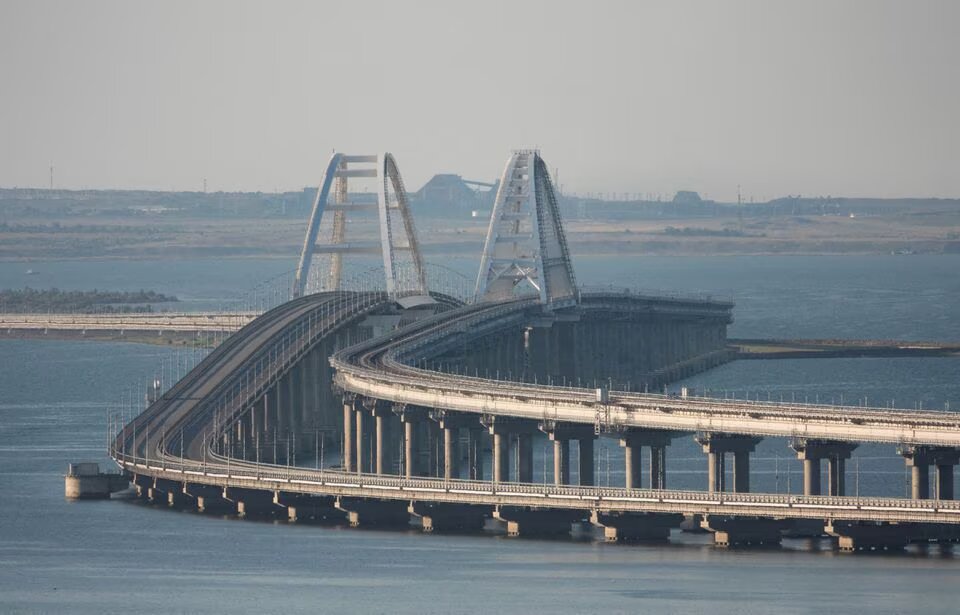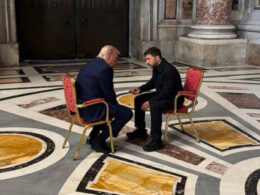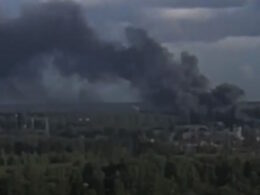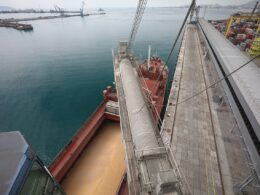Talks aimed at finding a path to peace in Russia’s war against Ukraine, scheduled for 23 April in London with the participation of the US Secretary of State and European foreign ministers, have been postponed, according to The Guardian.
The high-level meeting was expected to bring together the foreign ministers of Ukraine, the UK, Germany, France, and Rubio. However, after Ukraine rejected the Trump administration’s proposal on Crimea, the US secretary of state canceled his participation, and France and Germany’s foreign ministers quickly followed. Instead, bilateral talks between Ukraine’s and Britain’s top diplomats will now take place in London.
Despite this, Ukraine’s delegation arrived in London, including Head of the Presidential Office Andrii Yermak, Defense Minister Rustem Umerov, and Foreign Minister Andrii Sybiha.
The UK Foreign Office has officially confirmed the collapse of the negotiations. UK Foreign Secretary David Lammy said he had a productive conversation with Rubio the night before but noted that today’s talks would proceed at a lower level.
“Talks continue at pace and officials will meet in London tomorrow. This is a critical moment for Ukraine, Britain and Euro-Atlantic security,” he said.
Earlier, the US had presented a "peace plan" proposing that Washington recognize Crimea as part of Russia and unofficially accept Russian control over much of the territory occupied since the 2022 invasion. The White House had expected Ukraine’s response at today’s meeting, which has now been canceled.
Russia’s 2014 annexation of Crimea marked the first post-WWII seizure of European territory by force, violating the UN Charter’s foundational principles of sovereignty and territorial integrity. This precedent, if accepted, risks triggering a cascade of territorial claims by states like China or Iran, destabilizing the rules-based system. Crucially, the war is not merely about Crimea or other territory, but reflects Russia’s broader objective to erase Ukrainian statehood, as evidenced by its 2022 full-scale invasion, eight years after annexing Crimea, which targeted Kyiv and sought regime change.
At the same time, Andrii Klymenko, Head of the Institute for Strategic Black Sea Studies, has emphasized that a "Russian" Crimea would mean full Russian dominance over the Black Sea and the surrounding region.
"This will never happen after the disgraceful defeat of Russia’s Black Sea Fleet by Ukraine’s Armed Forces.
In fact, the optimal use of the Crimean Peninsula in the new European security architecture would be: the establishment of a comprehensive European military base on the peninsula (including naval, missile defense, and counter-sabotage components) to serve as a stronghold for deterring Russian aggression from the southeast," he adds.
Meanwhile, US Vice President J.D. Vance warned that the US would withdraw from mediating the peace process if it did not receive a positive response from both Ukraine and Russia, as per the Clash Report.
He also said that Ukraine and Russia would need to "redraw the conflict’s borders," implying that both sides would have to cede some territories currently under their control.
Kremlin spokesperson Dmitry Peskov has also commented on the breakdown of the talks, following Rubio’s and other European diplomats' withdrawals. He said Moscow does not view Vance's statements about a potential US withdrawal as an ultimatum, UNIAN has reported.
Additionally, Peskov has reiterated that Russia remains firmly opposed to the deployment of European peacekeepers in Ukraine.
Previously, Reuters sources revealed that several of Washington’s proposals were deemed unacceptable by European countries and Kyiv. French Foreign Minister Jean-Noël Barrot said that European officials had clearly outlined to the US which aspects of any potential peace agreement they consider non-negotiable, including reportedly the recognition of Crimea as Russian.
Beyond Crimea, other major disagreements persist, including Russia’s demand that EU sanctions be lifted before peace negotiations are concluded — a condition European diplomats strongly oppose.
On 22 April, Mejlis Chairman Refat Chubarov said the Crimean Tatars would not recognize Russia’s control over Crimea or any international acknowledgment of the peninsula as Russian.
The highest executive-representative body of the Crimean Tatars also emphasized that since the start of Russia’s occupation of Crimea in 2014, the Crimean Tatar people consistently opposed Russia’s annexation attempts and supported Ukraine’s sovereignty.





